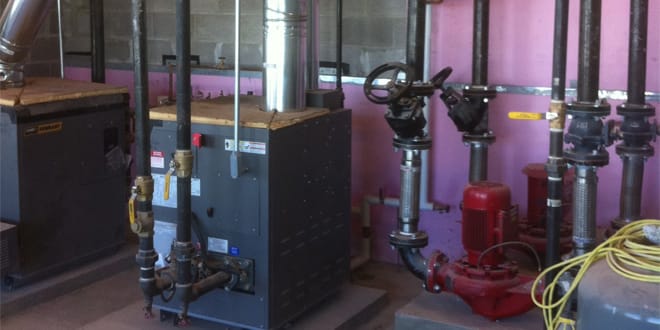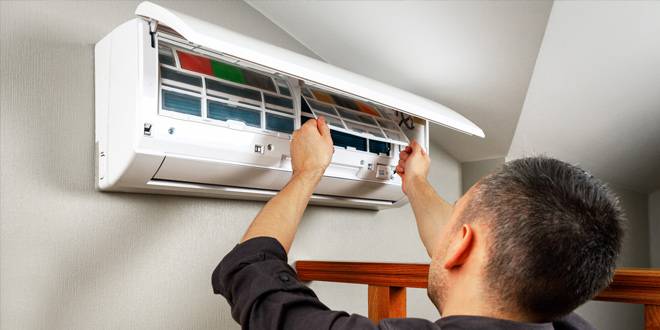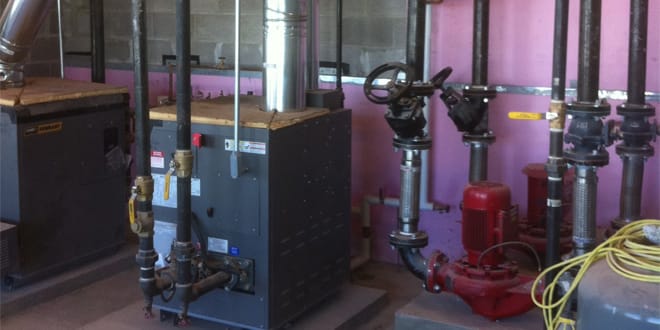
Table of Contents
| Section Title | Overview |
| Glossary of Terms | Explains key HVAC terminology used throughout the blog. |
| Introduction | Covers why HVAC maintenance is vital for Brooklyn’s unique climate and home structure needs. |
| What is an HVAC Tune-Up? | Defines an HVAC tune-up and its key components, explaining the technical details and importance. |
| Benefits of Regular HVAC Maintenance | Discusses energy efficiency, lower bills, longevity, and air quality improvements. |
| Seasonal HVAC Maintenance Checklist | Provides a guide for homeowners on what to check seasonally, in sync with expert tune-up timing. |
| HVAC Tune-Up Frequency | Details how often Brooklyn homeowners should consider tune-ups based on system age, usage, and climate. |
| Cost Savings from HVAC Tune-Ups | Includes data on potential cost savings from regular maintenance and efficiency improvements. |
| Fun Facts About HVAC Systems | Shares engaging trivia about HVAC systems and energy use in residential homes. |
| FAQ: HVAC Tune-Ups for Homeowners | Answers common questions about HVAC tune-ups, including timing, cost, and benefits. |
Glossary of Terms
- HVAC: Heating, Ventilation, and Air Conditioning system.
- Refrigerant: A chemical compound used in HVAC systems to cool air.
- Thermostat: Device that controls the heating and cooling system to maintain temperature.
- Air Filter: A component that removes contaminants from the air to ensure indoor air quality.
- Efficiency Rating (SEER): Seasonal Energy Efficiency Ratio; measures the efficiency of cooling systems.
Introduction
Brooklyn’s homes are as varied as its neighborhoods, with residences ranging from classic brownstones to modern high-rises. No matter the style of home, Brooklyn homeowners know that reliable heating and cooling are a must, given the region’s hot summers and chilly winters. Regular HVAC tune-ups are essential to managing these seasonal demands. They help ensure your system runs efficiently, prolong its lifespan, and save on energy costs. This article delves into why HVAC tune-ups are so important, their benefits, and tips on seasonal care for optimal performance.
What is an HVAC Tune-Up?
An HVAC tune-up is a comprehensive service where a qualified technician inspects, cleans, and adjusts your heating and cooling system. During a tune-up, every essential component—such as refrigerant levels, coils, blower motor, and thermostat settings—is checked to ensure they’re operating efficiently. By catching small issues early, tune-ups prevent costly breakdowns and ensure that your system is ready for the upcoming season, whether that means battling summer heat or keeping out winter’s chill.
Key Components of an HVAC Tune-Up:
- Air Filter Check & Replacement: Ensures efficient airflow and cleaner indoor air.
- Condenser & Evaporator Coil Cleaning: Improves cooling performance by allowing better heat exchange.
- Refrigerant Adjustment: Keeps your system cooling effectively without overworking.
- Thermostat Calibration: Ensures accurate temperature control for consistent comfort.
- Electrical Connections: Tightened and checked to prevent malfunctions and improve efficiency.
For more on what an HVAC tune-up includes, check out our heating maintenance services.

Benefits of Regular HVAC Maintenance
Regular HVAC maintenance is a proactive step that Brooklyn homeowners can take to enjoy a comfortable and energy-efficient home. Here are some key benefits:
1. Improved Energy Efficiency
When HVAC components are clean and running smoothly, the system doesn’t have to work as hard to maintain your preferred temperature. This increased efficiency translates to lower energy consumption, which can reduce your electricity bill significantly.
2. Lower Utility Bills
A well-maintained system uses less energy to perform at the same level, ultimately reducing your monthly utility bills. According to industry estimates, regular HVAC tune-ups can save homeowners up to 15% annually on energy costs by keeping systems optimized for efficiency.
3. Extended System Lifespan
Regular maintenance helps your HVAC system last longer by preventing minor issues from escalating into major breakdowns. Well-maintained systems can last up to 15-20 years, while systems that aren’t routinely serviced may require replacement after only 10 years. With periodic tune-ups, you’re investing in the longevity of your HVAC unit, saving money on premature replacements.
4. Reduced Risk of Breakdowns
Preventative maintenance allows technicians to catch and address small issues before they develop into costly problems. This means fewer unexpected system failures and less chance of needing emergency repairs during Brooklyn’s extreme weather. Tune-ups ensure your system is prepared for both the hottest and coldest months, keeping you comfortable year-round.
5. Enhanced Indoor Air Quality
Indoor air quality is essential, especially in homes with pets, children, or residents with allergies. During a tune-up, filters are checked and replaced, and the system is inspected for any buildup of dust, dirt, or mold that could compromise air quality. By regularly cleaning or replacing filters, HVAC maintenance reduces allergens and pollutants in your home, keeping your indoor air fresh and healthy.
6. Environmental Impact
A well-maintained HVAC system runs more efficiently, consuming less energy and reducing carbon emissions. By regularly tuning up your system, you’re contributing to a smaller carbon footprint—a win for your wallet and the environment alike.
For more information on upgrading to an efficient system, learn about our heating installation options.
Seasonal HVAC Maintenance Checklist
Brooklyn homeowners can take proactive steps with a seasonal maintenance checklist to ensure their HVAC system stays in peak condition. By following these seasonal tips, you’ll help your system run smoothly and be prepared for the extremes of summer and winter:
Spring
- Replace Air Filters: Clean or replace filters to prevent allergens from circulating.
- Clean Coils: Dirty coils can reduce cooling efficiency by up to 30%.
- Check Refrigerant Levels: Proper refrigerant levels are crucial for efficient cooling.
- Test Thermostat Settings: Ensure that the thermostat accurately reflects the indoor temperature.
Summer
- Inspect Air Ducts for Leaks: Leaks can cause cool air to escape, increasing energy use.
- Check Outdoor Condenser Unit: Clear any debris and make sure the unit has proper airflow.
- Monitor Energy Bills: Sudden increases in your bill may indicate inefficiencies.
Fall
- Inspect Heating Elements: Ensure all heating elements are functioning properly for the winter.
- Clean or Replace Filters: Prevent dust buildup and improve system efficiency.
- Test Safety Controls: Check the safety shut-off and other controls for reliable winter performance.
Winter
- Inspect Pilot Light or Ignition System: Ensure reliable heating during cold weather.
- Check Air Filters Again: Winter air can be particularly dry and dusty, so filter maintenance is key.
- Ensure Smooth Startup: Turn the system on early to confirm it’s ready for winter use.
Book a tune-up today and make sure your system is in shape for the season!
HVAC Tune-Up Frequency
For most Brooklyn homes, an annual HVAC tune-up is recommended, with spring and fall being ideal times for maintenance to prepare for summer and winter. However, homes with older systems, high usage, or special considerations—like indoor pets, smoking, or allergies—may benefit from biannual tune-ups to keep filters clean and air quality high.

Cost Savings from HVAC Tune-Ups
| Benefit | Potential Savings |
| Improved Efficiency | 10-20% reduction in energy bills |
| Fewer Emergency Repairs | Save up to $500 per repair |
| Extended System Lifespan | Delays replacement costs by 5+ years |
| Enhanced Indoor Air Quality | Reduces health costs for allergens |
Regular maintenance is a small investment that saves homeowners on multiple fronts, especially in energy efficiency and prolonged system life.
Fun Facts About HVAC Systems
- HVAC systems consume nearly half of a household’s total energy use!
- Air conditioning technology was originally invented to control humidity in printing factories.
- A dirty HVAC filter can reduce efficiency by up to 15%!
- Brooklyn’s climate makes reliable HVAC crucial, with hot summers and freezing winters.
FAQ: HVAC Tune-Ups for Homeowners
- How often should I schedule an HVAC tune-up?
Most experts recommend at least once per year. - Is an HVAC tune-up really necessary?
Yes, regular tune-ups maintain efficiency, improve comfort, and prevent costly repairs. - How long does a tune-up take?
Typically, an HVAC tune-up takes 1-2 hours depending on system condition. - What if my HVAC system is new?
Newer systems still benefit from tune-ups to maintain efficiency and identify any early issues. - What are the signs my HVAC needs a tune-up?
High energy bills, uneven temperatures, or strange noises can all be signs your system needs attention.
Keep Your System Running Smoothly with Iceberg Mechanical
Regular HVAC maintenance keeps your Brooklyn home comfortable and energy-efficient, even in extreme weather. A professional tune-up can prevent costly breakdowns and ensure your system functions smoothly year-round.
For quality service you can trust, contact Iceberg Mechanical today to schedule your HVAC tune-up. Our team is dedicated to keeping Brooklyn homes comfortable with reliable, expert service.


